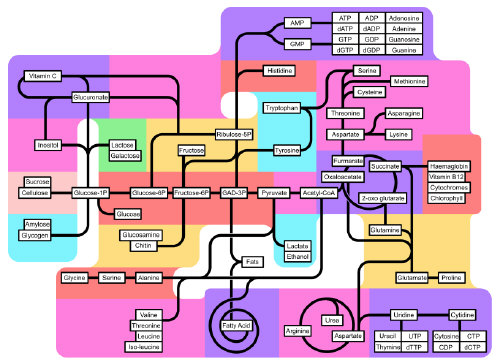
简单分析:
今年英语一真题,来源于《自然》杂志,发表于2011年4月14日.具体文章如下,划线部分为考研试题。出题人略有改动。
Since at least the days of Aristotle, a search for universal principles has characterized the scientific enterprise. In some ways, this quest for commonalities defines science: without it, there is no underlying order and pattern, merely as many explanations as there are things in the world. Newton's laws of motion, the oxygen theory of combustion and Darwinian evolution each bind a host of different phenomena into a single explicatory framework.
46) In physics, one approach takes this impulse for unification to its extreme, and seeks a theory of everything — a single generative equation for all we see. 在物理学上,有一种方法将这种追求一致的冲动发挥到了极致,它试图找出一种超弦理论(也可以译作:万有理论)——用一个生成等式概括我们整个世界。It is becoming less clear, however, that such a theory would be a simplification, given the proliferation of dimensions and universes that it might entail. Nonetheless, unification of sorts remains a major goal.
This tendency in the natural sciences has long been evident in the social sciences too. 47) Here, Darwinism seems to offer justification, for if all humans share common origins, it seems reasonable to suppose that cultural diversity could also be traced to more constrained begin. 在此,达尔文主义似乎给出了一种合理的说法,因为如果整个人类起源相同,似乎有理由认为文化多样性也可以追溯到更有限的开端。 Just as the bewildering variety of human courtship rituals might all be considered to be forms of sexual selection, perhaps the world's languages, music, social and religious customs and even history are governed by universal features. 48) To filter out what is contingent and (出题人将这两个词删除了) unique from what is shared might enable us to understand how complex cultural behaviour arose and what guides it in evolutionary or cognitive terms. 如果将个别因素从共性中剔除,我们或许能够理解复杂的文化行为是如何产生以及是何种因素在进化或是认知的方面引导了这种行为。
That, at least, is the hope. But a comparative study of linguistic traits published online today (M. Dunn
The most famous of these efforts was initiated by Noam Chomsky, who postulated that humans are born with an innate language-acquisition capacity — a brain module or modules specialized for language — that dictates a universal grammar. A few generative rules are then sufficient to unfold the entire fundamental structure of a language, which is why children can learn it so quickly. Languages would diversify through changes to the 'parameter settings' of the generative rules.
49) The second, by Joshua Greenberg, takes a more empirical approach to universality, identifying traits (particularly in word order) shared by many languages, which are considered to represent biases that result from cognitive constraints. 做出又一贡献的是乔舒亚·格林伯格,他运用了更为鲜明的经验主义方法来研究这种普遍性,鉴别出多种语言的共同特征 (特别是在词序上的特征),而人们认为这些特征代表了由认知制约所产生的偏见。
Chomsky's and Greenberg's are not the only theories on the table for how languages evolve, but they make the strongest predictions about universals.
Gray and his colleagues have put them to the test using phylogenetic methods to examine four family trees that between them represent more than 2,000 languages. 50) A generative(出题人改为Chomsky’s)grammar should show patterns of language change that are independent of the family tree or the pathway tracked through it, whereas Greenbergian universality predicts strong co-dependencies between particular types of word-order relations (and not others).
乔姆斯基的语法应该表明语言变化的模式,这些模式独立于语言谱系或是所有依赖于该谱系所生成的路径,然而格林伯格的普遍性理论则认为在特定词序位置关系之间有着紧密的依附关系。
Neither of these patterns is borne out by the analysis, suggesting that the structures of the languages are lineage-specific and not governed by universals.
This does not mean that cognitive constraints are irrelevant, or that there are no other universals dictated by communication efficiency. It is surely inevitable that cognition sets limits on, say, word length. But such 'universals' seem likely to be relatively trivial features of languages, just as may be the case for putative universals in music and other aspects of culture.
The conclusion? We should perhaps learn the lesson of Darwinism: a 'universal' mechanism of adaptation says little in itself about how a particular feature got to be the way it is, or about how it works. This truth has dawned on physicists too: universal equations are all very well, but the world actually consists of particular solutions, and these are generally the result of contingent history. One size does not always fit all.

